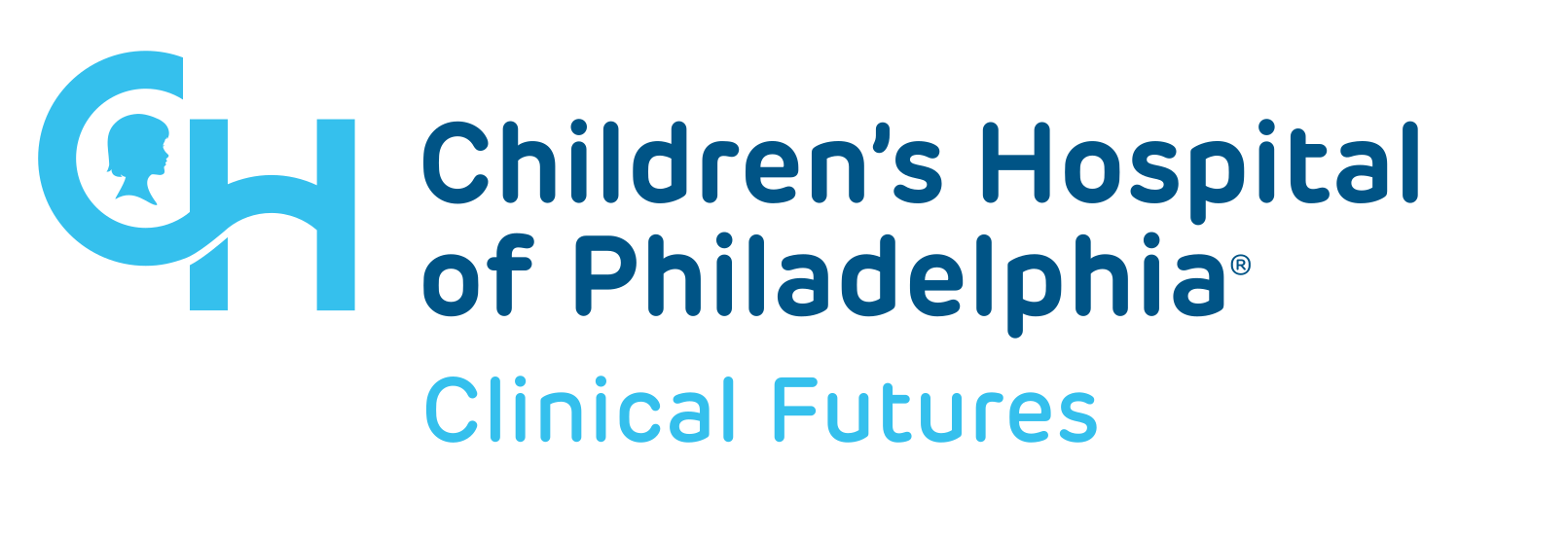Clinical Futures manages the Pediatric Hospital Epidemiology and Outcomes Research Training (PHEOT) program – a two year research fellowship designed to provide physicians with training in hospital epidemiology and outcomes research. The PHEOT program trains the next generation of clinical scientists who will help us to understand how to best measure and improve outcomes, assure patient safety, and manage costs for hospitalized children. Funded by a Eunice Kennedy Shriver National Institute of Child Health and Human Development training grant, PHEOT combines formal coursework and mentored research projects to help trainees develop expertise in comparative effectiveness research, quality measurement, severity adjustment and economic evaluation as they relate to pediatric hospital care.
Pediatric epidemiology trainees benefit from the combined resources of The Children’s Hospital of Philadelphia’s Research Institute, including Clinical Futures, PolicyLab, the Pediatric Advanced Care Team, the General Pediatrics Inpatient Service, and the Center for Simulation, Advanced Education and Innovation, among others.
Physicians who are United States citizens or permanent residents and have at least two years of postgraduate training are eligible to apply.
Coursework at the University of Pennsylvania (UPenn)
All fellows complete Masters-level coursework in study design and biostatistics at UPenn as part of either the Masters of Science in Clinical Epidemiology (MSCE) degree offered through the Center for Clinical Epidemiology and Biostatistics, or the Masters of Science in Health Policy Research (MSHP) degree offered through the Leonard Davis Institute of Health Economics.
Click here to learn more about the Center for Clinical Epidemiology and Biostatistics.
Click here to learn more about the Leonard Davis Institute.
Applied Experience and Professional Development
Fellows are guided by an advisory team of seasoned methodology, content, and biostatistics mentors in the successful completion and publication of at least one hospital-based research project. PHEOT fellows also benefit from a host of professional development activities, including works-in-progress sessions, a seminar series to teach academic medicine skills, and opportunities to present research at national meetings.
Mentoring
Fellows are matched with a primary mentor from among the faculty at CHOP and UPenn, based on mutual research interests. Current and recent PHEOT faculty mentors include:
Clinical Responsibilities
In order to maintain their clinical skills and continue to practice in the setting where their research ideas arise and protocols may be implemented, fellows in the PHEOT program are assigned clinical experiences that comprise up to 20 percent of their time. Clinical experiences may include time spent as an attending physician on CHOP's General Pediatric Inpatient Service, the pediatric or neonatal ICU, the Pediatric Advanced Care Team, or various subspecialty units.
Training Program Directors
Chris Feudtner, MD, PhD, MPH
PHEOT Co-Director
Chief, Division of General Pediatrics
Attending Physician, The Children’s Hospital of Philadelphia
Professor of Pediatrics, Perelman School of Medicine at the University of Pennsylvania
Christopher Bonafide, MD, MSCE
PHEOT Co-Director
Attending Physician, The Children’s Hospital of Philadelphia
Associate Professor of Pediatrics, Perelman School of Medicine at the University of Pennsylvania
How to Apply
Applications for pediatric epidemiology training will be accepted starting July 1 for the academic year beginning the following year. Interviews and acceptance will be granted on a rolling basis. Applications for consideration for a July 2026 start are due November 1, 2025.
In addition to the completed application, the following materials will need to be submitted:
- A personal statement, no longer than two pages, describing your research interests, career goals, and how the PHEOT program will help you achieve those goals.
- Four supporting letters of reference, including one from your residency program or sub-specialist fellowship director.
- Curriculum Vitae including a list of publications (if applicable).
- Official transcripts from all degree-granting institutions you have attended, sent directly from the institutions.
- Parts 1, 2 and 3 of the United States Medical Licensing Examination (USMLE), taken within the seven-year timeframe as required by the Commonwealth of Pennsylvania, or equivalent scores.
- If a graduate of a medical school outside of the United States, Canada, or Puerto Rico, a valid Educational Commission for Foreign Medical Graduates (ECFMG) certificate, or one that does not expire prior to the start of the fellowship.
- If not a citizen or non-citizen national of the United States, verification of permanent residency status
- Medical School Performance Evaluation (MSPE) is listed on the application as a required document but is optional.
- COMLEX Score Reports are listed on the application as required documents but are optional.
NOTE ABOUT THE APPLICATION: On the application, Race/Ethnicity is a combined field that doesn't allow more than one selection. We are working on rectifying this issue but in the meantime, please reach out to Natalie Schroeder directly about this issue when you submit your documents if you wish to indicate more than one.
Additionally, you must simultaneously apply to the University of Pennsylvania MSCE or MSHP program.
All materials can be submitted electronically to Natalie Schroeder.
NOTE: To help preserve and improve the health of our patients, their families and our employees, The Children's Hospital of Philadelphia has a tobacco-free hiring policy.
To learn more about pediatric fellowships at CHOP, click here.
Questions about the PHEOT program can be submitted to Natalie Schroeder.




